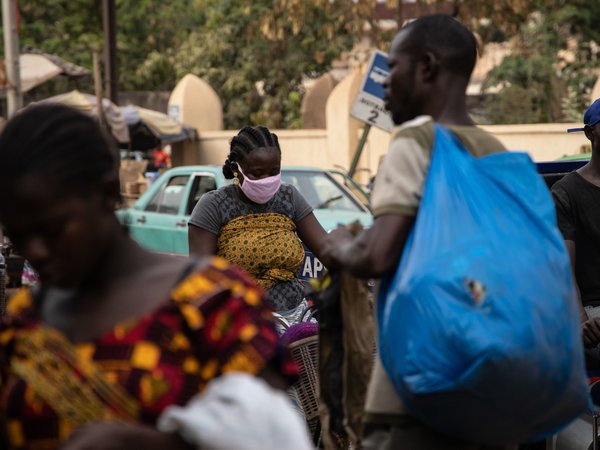
BY NOKUTHABA DLAMINI
Teenage mother Bokani Shoko walks over 20 kilometres per day to Victoria Falls from her rural home in Chikandakubi to sell vegetables in order to fend for her family as hunger induced by the ongoing Covid-19 lockdown takes its toll on villagers.
Shoko (17) was forced to drop out of school and face early marriage in 2019 after falling pregnant.
The Covid-19 pandemic has made her life and that of her husband together with their eight-month-old son much harder — prompting them to sell vegetables in the city despite stiff restrictions.
Shoko’s husband, formerly employed in the tourism sector, lost his job early last year.
She narrated how she braves walking through thick forests and without a travel document required by the law enforcement agencies to get to the city in order to save her family from starvation.
“I wake up at 4am every day with my husband to prepare for our journey to town to sell vegetables or maize cobs,” Shoko said.
“We have a small irrigation scheme and this is where we get okra, tomatoes and onions. So we pick what we are going to sell the previous evening before we go to sleep,then pack them the following morning before leaving for business.
- Chamisa under fire over US$120K donation
- Mavhunga puts DeMbare into Chibuku quarterfinals
- Pension funds bet on Cabora Bassa oilfields
- Councils defy govt fire tender directive
Keep Reading
“We use a shorter route through the bush that passes along Sizinda and Monde villages until we get to Masuwe bridge, although frequently we have come across elephants and buffaloes.”
Shoko said so far they had not faced any serious threats from the wild animals except baboons, which snatch their wares occasionally.
For the couple, the fear of wild animals is not a deterrent, the lack of income gives them the resolve.
Shoko said upon entering the city at around 8am, they give each other tasks to sell in different suburbs before heading back to their village after 3pm.
“I sell from Mkhosana while my husband goes to Chinotimba and we make about $1 200 on a good day and this is how we have been surviving and most people in our village have adopted similar ways to sell their produce,” she said.
Sibongile Vundla from BH28 under Chief Mvuthu is another vendor who is defying the odds to sell vegetables to fend for her three children.
Like Shoko, Vundla walks an average distance of 10km to town with her two-year-old son.
They also have to navigate the thick bushes infested with wildlife.
Vundla has sometimes been forced to abandon her goods to protect herself and child from harm after stumbling on dangerous wild animals.
“This is risky, but what will I give the children since my husband has abandoned me?” asked Vundla.
“A lot happens in the bush, but we can’t stay at home when there is no hope of Covid-19 coming to an end.
“I sell okra and ulude (African spider flower leaves) from my fields and at the end of the day l make about $500 and I use the money to buy mealie-meal among other home basics.”
Twice, Vundla has been made to drop off a Zupco bus at Masuwe Bridge roadblock for not having a clearance letter.
Acting Chief Mvuthu, Bishop Matata Sibanda, acknowledged the two women’s stories resonated with those of many other villagers who have decided to venture into informal trading in order to make ends meet.
“People are suffering and starvation is affecting many in the villages,” Sibanda said.
“We have seen even school-going children resorting to vending or engaging in other small businesses to assist their parents and this is something that worries us as the traditional leadership.”
Mvuthu said hopes were now being pinned on this season’s harvest.
The department of Social Development says Matabeleland North province has over 50 000 households in need of bailouts, but reaching out to them has been impeded by the economic instability.
In Hwange district, the department said it offers 395 vulnerable households cash transfers to cushion them during the Covid-19 lockdown period, but the number of people in need of assistance was higher.
In the report, the department further notes that some vulnerable beneficiaries have not yet collected their SIM cards to enable them to receive some cushioning funds due to the ongoing lockdown which makes life more difficult for the vulnerable groups.
- This article was originally published by The Citizen Bulletin, a non-profit news organisation that produces hard-hitting, hyperlocal reporting and analysis for the southwestern region of Matabeleland.










